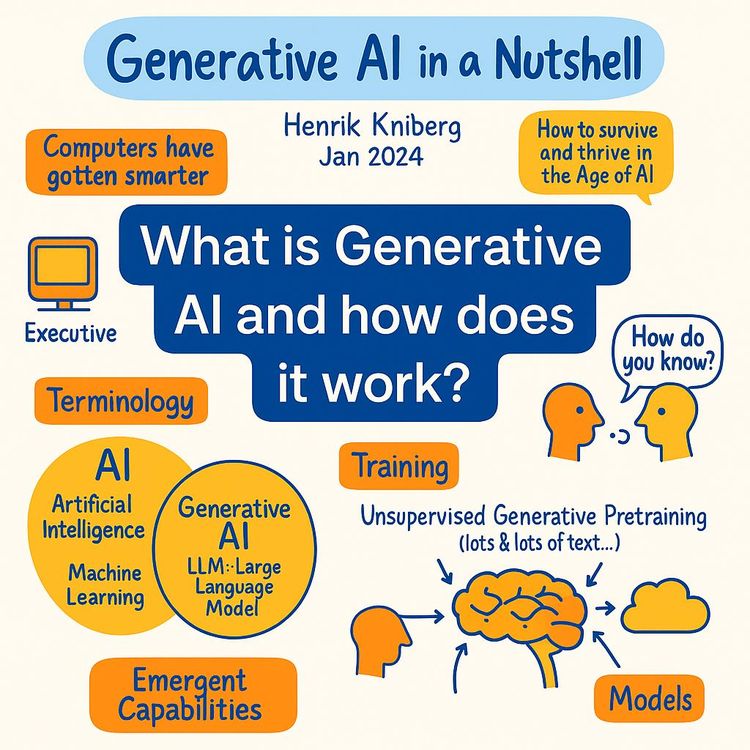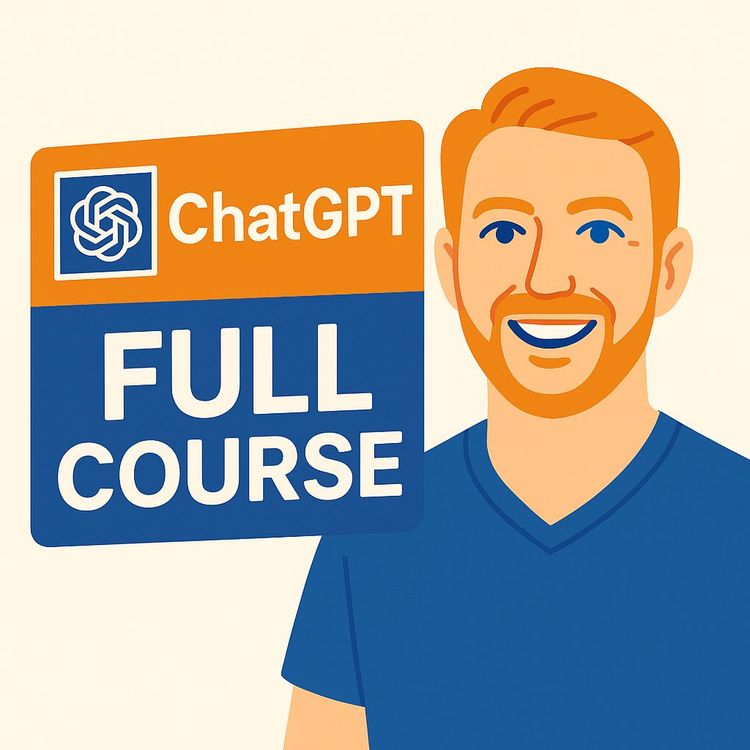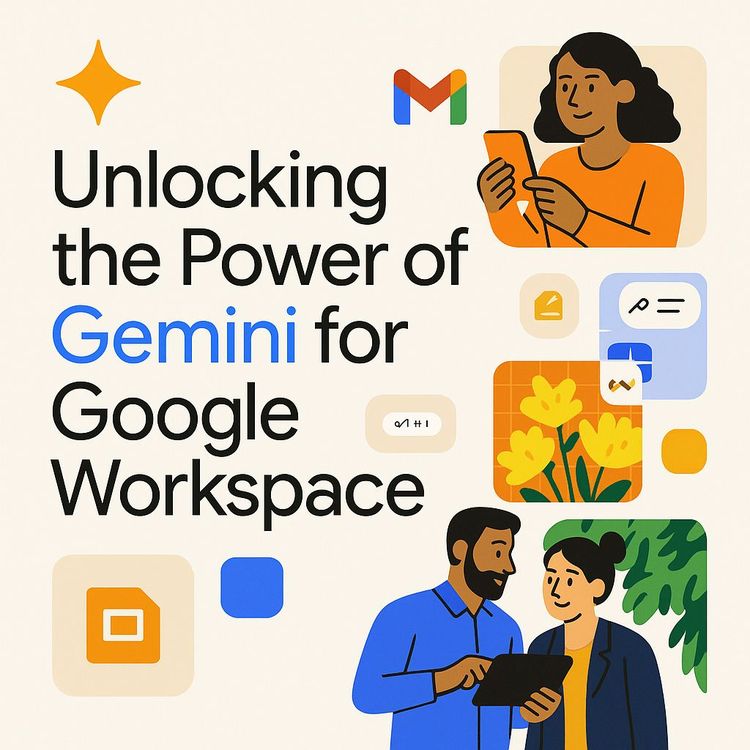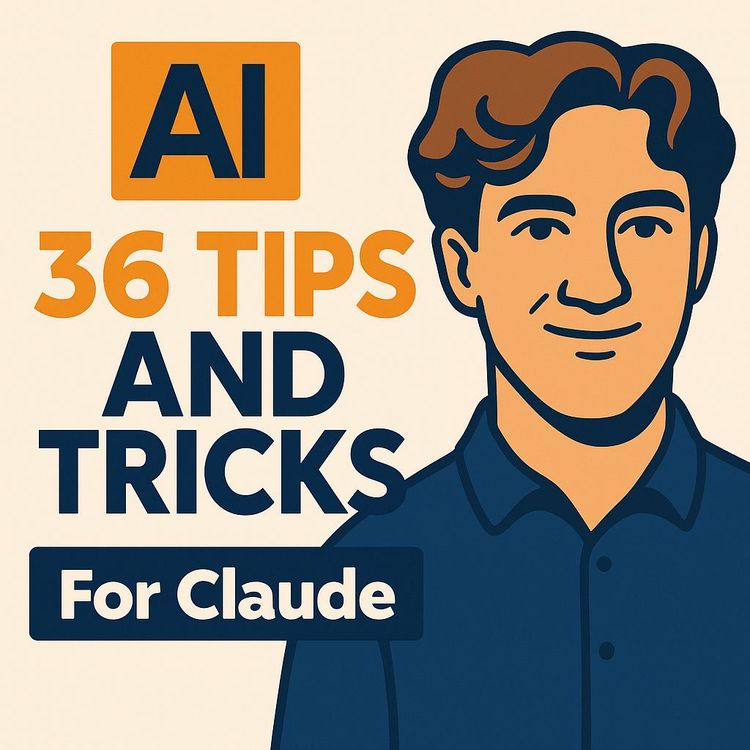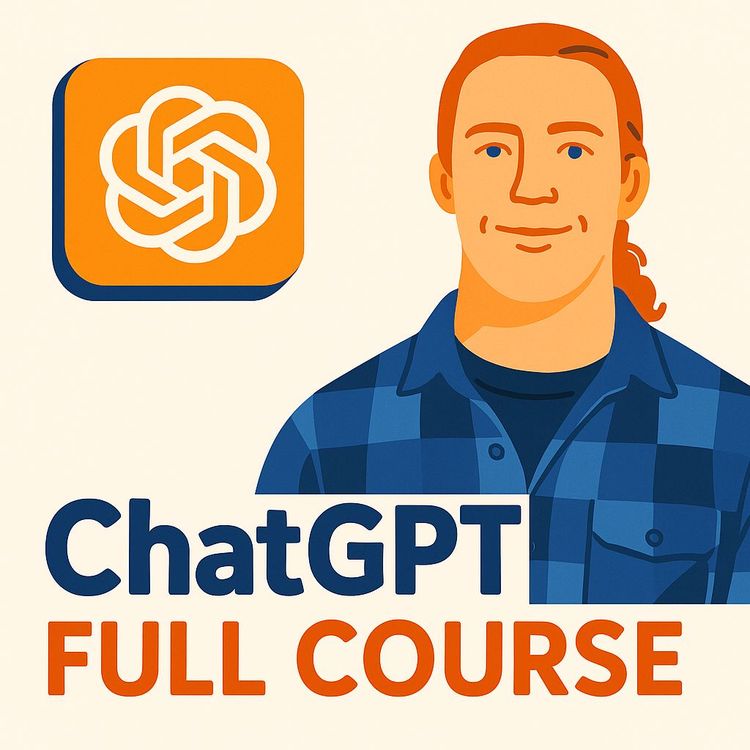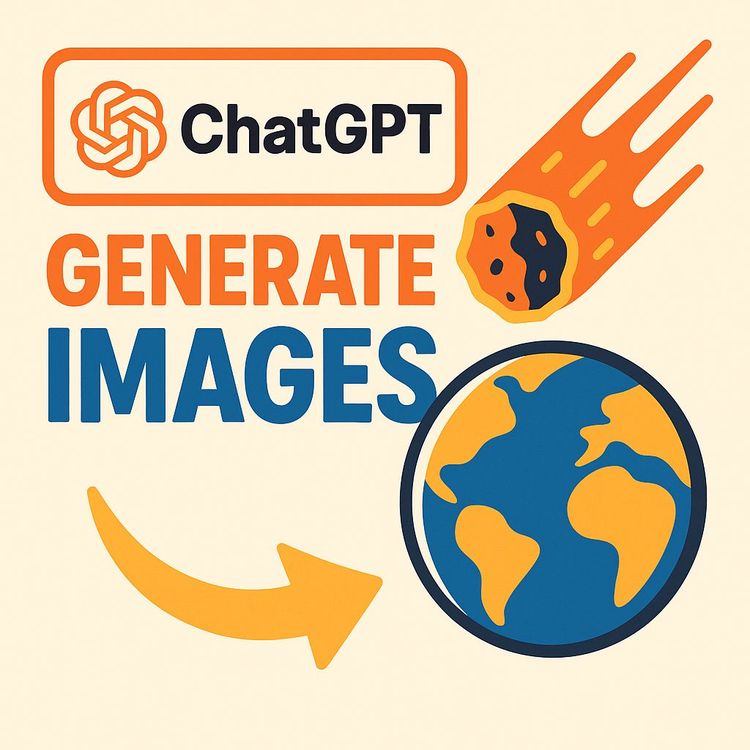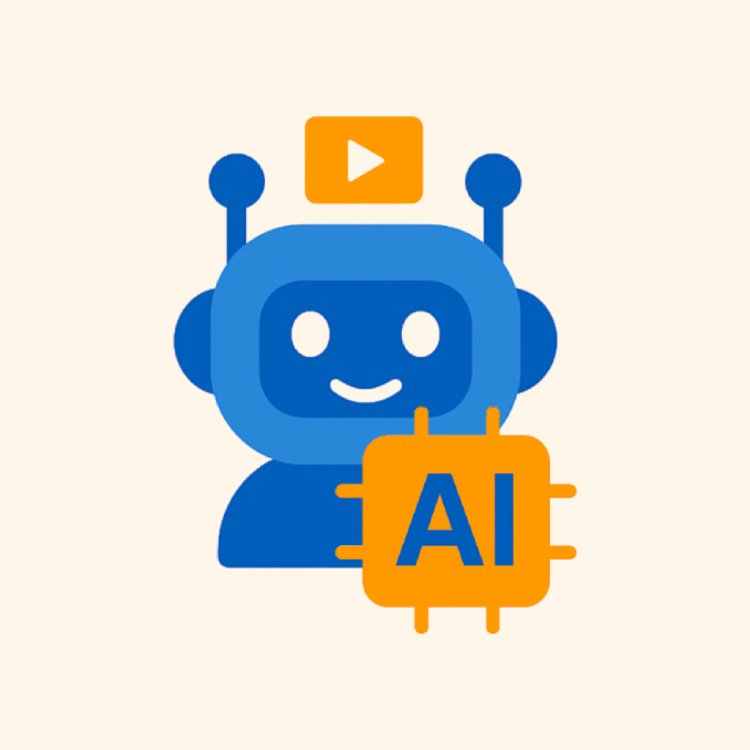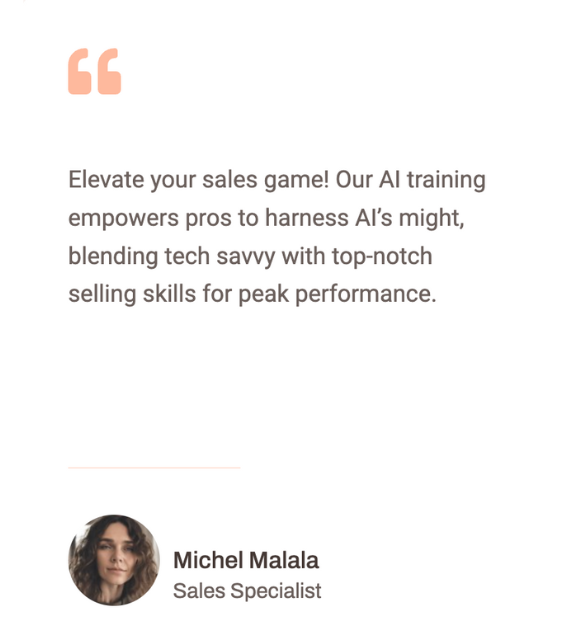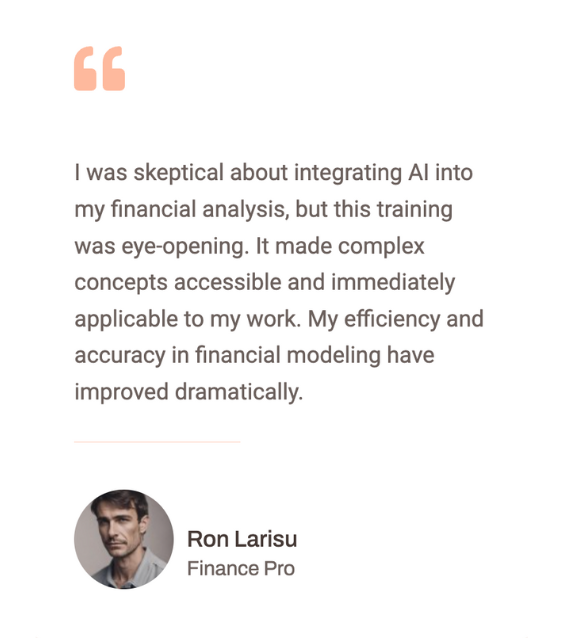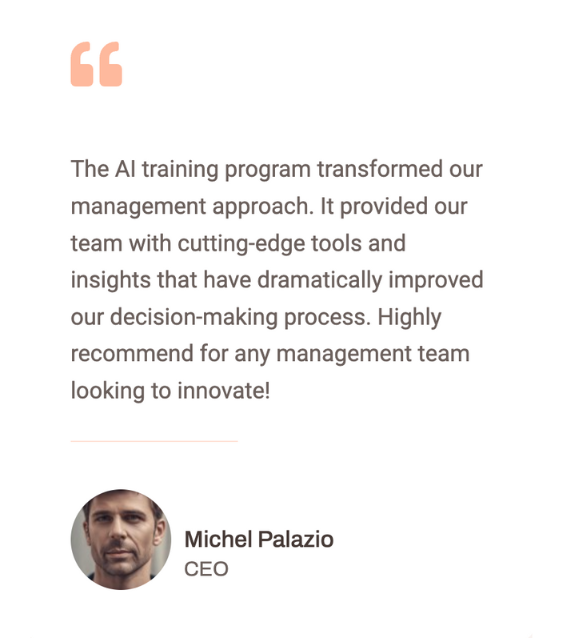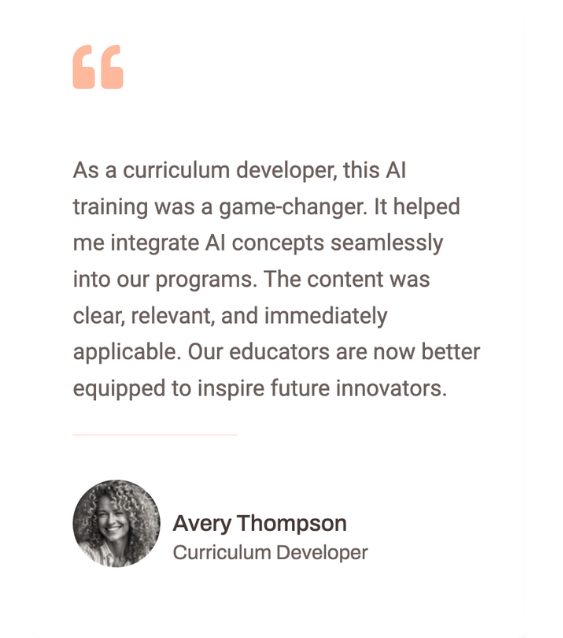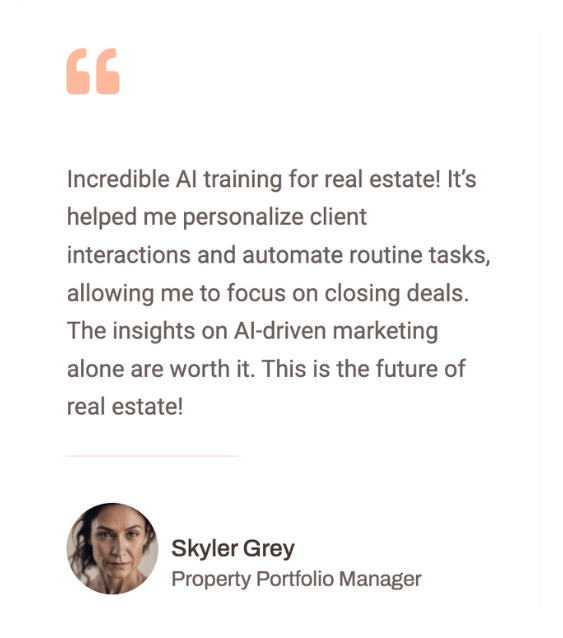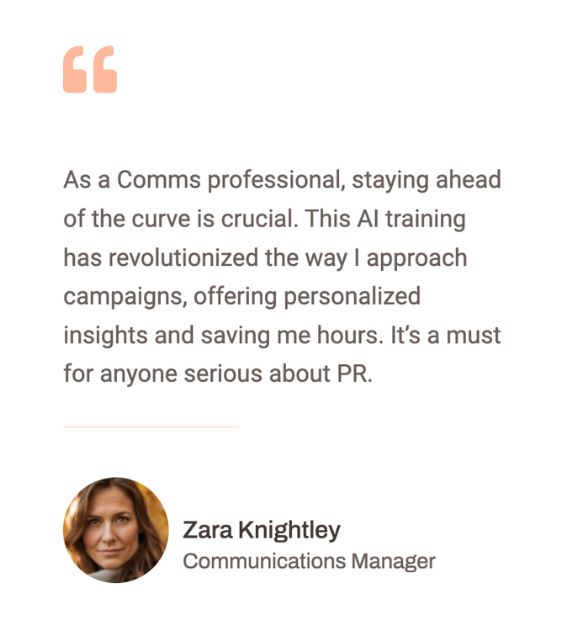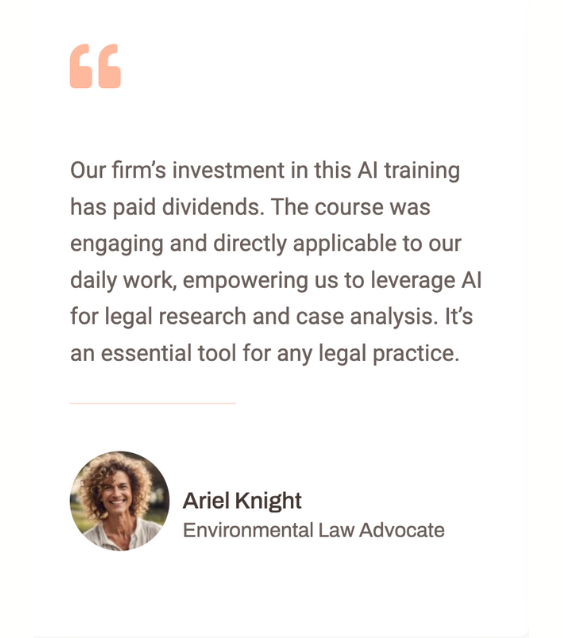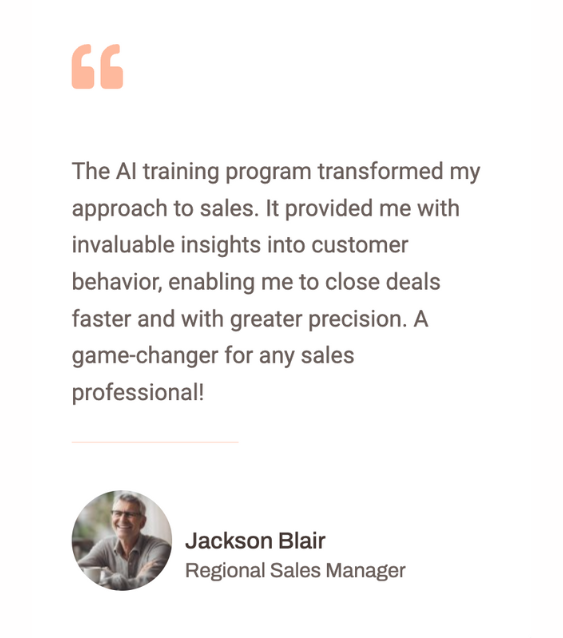Video Course: Chat GPT Prompting Masterclass for Insurance Marketing
Unlock the potential of AI in insurance marketing with our masterclass. Tailored for Canadian brokerages, this course empowers small teams to achieve big results by streamlining tasks and enhancing strategy through AI. Transform your marketing approach today!
Related Certification: Certification: ChatGPT Prompt Engineering for Advanced Insurance Marketing
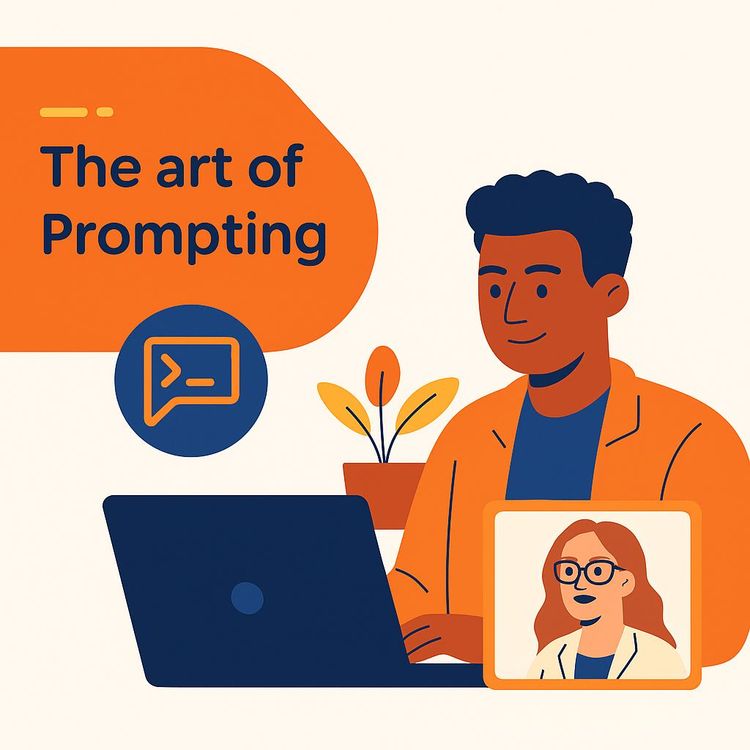
Also includes Access to All:
What You Will Learn
- Apply a four-step prompting framework for reliable AI outputs
- Generate content calendars, blog posts, and social media copy with ChatGPT
- Create customer personas and perform audience analysis from data
- Use AI-assisted SEO keyword research and optimize existing content
- Implement data-privacy best practices and human review workflows
Study Guide
Introduction
Welcome to the 'Video Course: Chat GPT Prompting Masterclass for Insurance Marketing'. In a world where digital transformation is rapidly reshaping industries, understanding how to effectively leverage AI, particularly ChatGPT, can revolutionize your marketing efforts. For insurance marketing, especially within Canadian brokerages, AI offers a unique opportunity to bridge the gap between limited resources and ambitious marketing goals. This course is designed to equip you with the skills to harness the power of AI, enhancing your marketing strategies and outcomes.
The Transformative Potential of AI in Insurance Marketing
The insurance industry is traditionally seen as conservative, but the introduction of AI is a game-changer. AI can help lean marketing teams achieve their content goals, improve work-life balance, and deliver significant results. Imagine a scenario where a small team manages to produce the output of a much larger team. This is the promise of AI.
Practical Application:
AI can automate mundane tasks such as social media post creation, allowing marketers to focus on strategic initiatives. For example, using AI to schedule and optimize posts can free up hours each week.
Tip:
Start by identifying repetitive tasks that consume your time and explore AI tools that can automate these processes.
Addressing the Unique Challenges of Insurance Brokerages
Most Canadian brokerages operate with small marketing teams, often lacking the resources of full-stack teams. AI acts as a force multiplier, enabling these smaller teams to achieve the output of much larger ones.
Example 1:
A brokerage with a two-person marketing team uses ChatGPT to draft and edit blog posts, reducing the time spent on content creation by half.
Example 2:
AI tools can help in creating detailed customer personas by analyzing customer databases, providing insights that would typically require a dedicated analyst.
Best Practice:
Leverage AI to handle data-driven tasks, allowing your team to focus on creative and strategic aspects of marketing.
The Importance of Effective AI Prompting
The art of prompting is crucial in obtaining quality outputs from AI. The specificity and quality of your prompts directly influence the AI's performance.
Example 1:
Instead of asking, "Create a marketing plan," specify, "Create a marketing plan for high-value home insurance targeting urban professionals in Toronto."
Example 2:
When seeking content ideas, provide context: "Generate blog topics for a family-oriented insurance product focusing on safety and savings."
Tip:
Always provide context and examples in your prompts to guide the AI towards more relevant outputs.
Practical Use Cases of Generative AI in Insurance Marketing
Generative AI can be applied across various marketing functions, from persona creation to SEO optimization.
Example 1:
AI can assist in developing content calendars tailored to specific products and demographics, streamlining the planning process.
Example 2:
For SEO, AI can suggest updates and relevant keywords to optimize existing content, improving search visibility.
Best Practice:
Regularly update your AI tools with the latest data and trends to ensure your marketing strategies remain relevant and effective.
Data Privacy Considerations When Using Generative AI
Understanding how different versions of ChatGPT handle data is crucial, especially in privacy-sensitive applications. The Enterprise version offers enhanced privacy features.
Example 1:
A brokerage using the Enterprise version ensures customer data remains private, maintaining trust and compliance.
Example 2:
For non-private versions, it's essential to anonymize data before inputting it into AI systems to protect sensitive information.
Tip:
Consult with your leadership to evaluate the benefits and costs of upgrading to the Enterprise version for enhanced data privacy.
The Role of Human Oversight and Expertise
AI outputs should not be treated as infallible. Human oversight is necessary to mitigate risks such as AI "hallucinations."
Example 1:
Always verify AI-generated content for accuracy and relevance before publishing, ensuring it aligns with your brand voice and values.
Example 2:
Incorporate a review process where human experts check the factual correctness and contextual appropriateness of AI outputs.
Best Practice:
Develop internal guidelines for reviewing AI-generated content, focusing on accuracy, consistency, and compliance.
The Integration of Multiple AI Tools
Leveraging different AI models can enhance your marketing efforts. For instance, combining ChatGPT with Gemini can optimize both content generation and SEO keyword research.
Example 1:
Use ChatGPT for drafting content and Gemini for identifying high-impact keywords to improve search engine rankings.
Example 2:
Integrate AI tools like Canva for creating and editing visuals, complementing text-based outputs for comprehensive marketing campaigns.
Tip:
Continuously explore new AI tools and updates to stay ahead in your marketing strategies.
Four-Step Framework for Effective Prompting
Implementing a structured approach to prompting can enhance the quality of AI outputs.
Step 1: Give Your GPT a Role
Example: "ChatGPT, act like a marketing director for a national insurance company aiming to increase high-value home insurance sales by 10% this year."
Step 2: Train Your GPT on Your Brand Voice and Values
Ensure consistency across all marketing materials by providing examples of your brand's tone and style.
Step 3: Be Specific and Provide Examples
Clearly define the desired outcome and include examples to guide the AI.
Step 4: Ask the GPT to Ask You Questions
Encourage the AI to seek clarification to provide more targeted and relevant results.
Tip:
Regularly refine your prompting techniques to improve the AI's understanding of your needs.
Conclusion
Congratulations on completing the 'Video Course: Chat GPT Prompting Masterclass for Insurance Marketing'. You are now equipped with the knowledge to transform your insurance marketing strategies using AI. By thoughtfully applying these skills, you can enhance efficiency, personalize customer interactions, and achieve significant marketing results. Remember, the key to success lies in continuous learning and adaptation, leveraging AI as a powerful tool to amplify your marketing efforts.
Podcast
There'll soon be a podcast available for this course.
Frequently Asked Questions
Frequently Asked Questions: Chat GPT Prompting Masterclass for Insurance Marketing
Welcome to the FAQ section for the 'Video Course: Chat GPT Prompting Masterclass for Insurance Marketing'. This resource is crafted to address common questions and provide insights into leveraging AI, particularly ChatGPT, in the realm of insurance marketing. Whether you're a beginner looking to understand the basics or an advanced user seeking to refine your skills, you'll find practical answers and examples to guide you through the effective use of AI in your marketing strategies.
Why should insurance brokers and agencies consider using AI in their marketing efforts?
AI offers significant advantages for insurance marketing, particularly for smaller teams with limited resources. It enables increased efficiency by automating mundane tasks like social media post creation, allowing staff to focus on higher-value activities. AI facilitates hyper-personalisation of marketing efforts through data analysis, leading to better customer engagement and results. Moreover, in a competitive landscape where many are already adopting AI, those who don't risk falling behind in content reach, personalised opportunities, and overall marketing effectiveness. Properly implemented AI can significantly amplify a small marketing team's output, potentially equating the efforts of two people to that of a much larger team.
What are some practical ways insurance brokerages can use generative AI like ChatGPT in their daily operations?
Generative AI can be used across various marketing functions. For instance, it can help create detailed customer personas by analysing customer lists or website visitors. It can assist in audience analysis, providing insights and predictive analytics to inform marketing strategies. AI is invaluable for developing marketing strategies and content calendars tailored to specific products, regions, and demographics. It can also be used to optimise existing content for SEO by suggesting updates and relevant keywords. Furthermore, AI tools can aid in editing documents, creating diverse content formats like blog posts and social media updates, analysing campaign results, and even conducting competitor analysis.
What are the key benefits of incorporating AI into insurance marketing workflows?
The primary benefits include hyper-personalisation of marketing messages and campaigns, leading to improved engagement and conversion rates. AI drastically increases efficiency by automating repetitive tasks, freeing up marketers' time. It provides data-driven insights through the analysis of customer data, helping to identify target audiences and optimise marketing spend. Automation extends to tasks like generating social media content quickly. Ultimately, AI empowers even small teams to achieve marketing results comparable to those of larger organisations with dedicated marketing departments.
How can insurance marketers effectively train and prompt generative AI models to achieve desired outcomes?
Effective prompting involves a structured approach. First, give the AI a clear role relevant to the task, such as "act like a marketing director for a national insurance company." This helps the AI focus its knowledge. Second, train the AI on your brand voice and values to ensure consistent messaging. Third, provide specific instructions and examples of what you need, and then prompt the AI to ask clarifying questions to ensure it has enough information. Finally, refine the AI's initial responses with more detailed prompts and feedback to achieve the desired quality and output.
What are the key considerations regarding data privacy when using generative AI tools like ChatGPT for insurance marketing?
It's crucial to understand that standard versions of ChatGPT may use your data to train their models. To maintain privacy, especially when dealing with sensitive customer data, it's recommended to use the enterprise version of ChatGPT, which offers data privacy and does not use your data for training. If using a non-private version, it's essential to remove any personally identifiable information from data before inputting it into the AI. The trade-off with non-enterprise versions is that relying on privacy mode might require retraining the AI for each new chat, potentially slowing down workflow efficiency.
How can insurance marketers ensure the accuracy and reliability of AI-generated content and avoid potential pitfalls like AI hallucinations?
While AI can generate content efficiently, it's prone to "hallucinations," where it provides incorrect or fabricated information. To mitigate this, always ask the AI to cite the sources it used to generate content and verify these sources for accuracy and reliability. Be aware that AI might not always grasp the nuances of context and can exhibit biases present in its training data. Therefore, it's essential to have human oversight and review all AI-generated content for factual correctness, brand consistency, and adherence to industry regulations before publishing.
Will AI replace marketing jobs in the insurance industry?
The speaker believes that AI will not replace marketing jobs but rather augment and accelerate the work of marketers. AI can handle routine tasks and provide valuable insights, allowing marketing professionals to focus on strategic thinking, creativity, and tasks requiring human judgment and empathy. While AI enables smaller teams to achieve more, the need for skilled marketers to train AI, oversee its output, and develop overall marketing strategies remains crucial. The focus shifts towards marketers leveraging AI as a powerful tool to enhance their capabilities and productivity.
Are there specific AI tools mentioned that are particularly useful for insurance marketing?
The speaker highlights the use of ChatGPT for content creation, persona development, strategy planning, and data analysis. They also mention Gemini (Google's AI) as being particularly strong for keyword research and incorporating those keywords naturally into content for search engine optimisation, even though its general content generation capabilities are currently considered less advanced than ChatGPT. Canva is also mentioned as a valuable tool for creating and editing visuals for marketing campaigns, complementing the text-based outputs of AI models.
Why is effective prompting crucial in using generative AI for marketing tasks?
Effective prompting is essential because it guides the AI to produce more relevant and high-quality content. By clearly defining the role, such as acting as a marketing director, and providing detailed instructions, you help the AI focus its responses. This targeted approach ensures the AI's output aligns with the specific needs of your marketing strategy, enhancing both the efficiency and effectiveness of your campaigns.
How does the adoption of generative AI impact competitiveness in the insurance industry?
Generative AI adoption is increasingly seen as necessary for maintaining competitiveness in the insurance industry. By automating routine tasks and providing data-driven insights, AI allows companies to personalise their marketing efforts and engage customers more effectively. Those who embrace AI can optimise their marketing strategies, improve customer interactions, and ultimately achieve better business outcomes, while those who don't may struggle to keep up with more agile competitors.
What were the initial motivations for exploring the use of GPT in marketing work?
The speaker was initially motivated by the need to reduce long working hours to achieve a better work-life balance and to meet content goals and deadlines with limited resources in a lean marketing team. AI offered a way to maintain productivity while alleviating the pressures associated with traditional marketing tasks.
What are "AI hallucinations," and why should users be aware of them?
"AI hallucinations" refer to instances where generative AI provides incorrect or completely fabricated information, often sounding plausible. Users need to be aware of this as it can lead to the dissemination of misinformation and damage credibility. Ensuring human oversight and verification of AI-generated content is crucial to maintaining accuracy and trustworthiness.
Why is simply generating and publishing AI content not recommended as an SEO strategy?
Simply publishing AI-generated content is not a good SEO strategy because search engines prioritise content that demonstrates authenticity, expertise, and trustworthiness. Untrained AI might lack these qualities, and content should always be optimised with relevant keywords and updated regularly. Human involvement is necessary to ensure that AI content meets these criteria and effectively supports SEO goals.
How can ChatGPT be integrated with other tools for enhanced marketing outcomes?
ChatGPT can be integrated with other tools like Gemini for keyword research and Canva for visual creation. This combination allows marketers to optimise content for search engines and create visually appealing marketing materials, enhancing the overall effectiveness of their campaigns. By leveraging multiple tools, marketers can address various aspects of their strategy, from content creation to audience engagement.
What are the ethical considerations when using generative AI in insurance marketing?
Ethical considerations include ensuring data privacy, avoiding the dissemination of misinformation, and maintaining brand authenticity and trust. It's crucial to use AI responsibly, verifying content accuracy and ensuring compliance with industry regulations. Transparency with customers about AI use and maintaining human oversight are also important to uphold ethical standards and build trust.
What are some practical applications of generative AI beyond content creation for insurance brokerages?
Beyond content creation, generative AI can be used for audience analysis by uploading anonymised customer data to identify key demographics and personas for targeted marketing. It can also be employed for competitor analysis by feeding it information about rival companies to understand their strategies. These applications allow brokerages to refine their marketing tactics and better meet customer needs.
What is the four-step prompting method for achieving high-quality AI-generated content?
The four-step method involves: 1) Giving the AI a specific role, such as a marketing director; 2) Training it on brand voice and values to ensure consistent messaging; 3) Providing specific instructions and examples; and 4) Encouraging the AI to ask clarifying questions to gather enough information. This structured approach helps in producing targeted and effective marketing content.
How do data-driven insights enhance marketing strategies in insurance?
Data-driven insights allow marketers to make informed decisions by analysing customer data to identify target audiences and optimise marketing spend. These insights help tailor marketing messages to specific customer segments, improving engagement and conversion rates. By leveraging data, insurance marketers can refine their strategies to better meet customer needs and achieve business goals.
What are the limitations of using AI in insurance marketing?
AI has limitations, such as the potential for generating incorrect or biased information due to its training data. It may also struggle with understanding context and nuances. Therefore, human oversight is essential to review AI-generated content for accuracy and relevance. Additionally, AI requires clear and well-crafted prompts to produce high-quality outputs, highlighting the need for skilled marketers to guide its use.
How can the ROI of AI in marketing be measured?
ROI can be measured by evaluating the efficiency and effectiveness improvements AI brings to marketing efforts. Key metrics include increased engagement rates, higher conversion rates, cost savings from automation, and overall improvements in marketing campaign performance. By comparing these metrics before and after AI implementation, marketers can assess the impact of AI on their marketing outcomes.
How does AI contribute to customer retention in insurance marketing?
AI contributes to customer retention by enabling hyper-personalisation of marketing efforts, ensuring that customers receive relevant and timely communications. By analysing customer data, AI can help marketers identify retention opportunities and design targeted campaigns to engage existing customers. This personalised approach fosters customer loyalty and enhances the overall customer experience.
Certification
About the Certification
Show you know how to use AI by earning certification in ChatGPT Prompt Engineering for Advanced Insurance Marketing—gain practical expertise to elevate your insurance marketing strategies and stand out in a competitive digital landscape.
Official Certification
Upon successful completion of the "Certification: ChatGPT Prompt Engineering for Advanced Insurance Marketing", you will receive a verifiable digital certificate. This certificate demonstrates your expertise in the subject matter covered in this course.
Benefits of Certification
- Enhance your professional credibility and stand out in the job market.
- Validate your skills and knowledge in cutting-edge AI technologies.
- Unlock new career opportunities in the rapidly growing AI field.
- Share your achievement on your resume, LinkedIn, and other professional platforms.
How to complete your certification successfully?
To earn your certification, you’ll need to complete all video lessons, study the guide carefully, and review the FAQ. After that, you’ll be prepared to pass the certification requirements.
Join 20,000+ Professionals, Using AI to transform their Careers
Join professionals who didn’t just adapt, they thrived. You can too, with AI training designed for your job.

